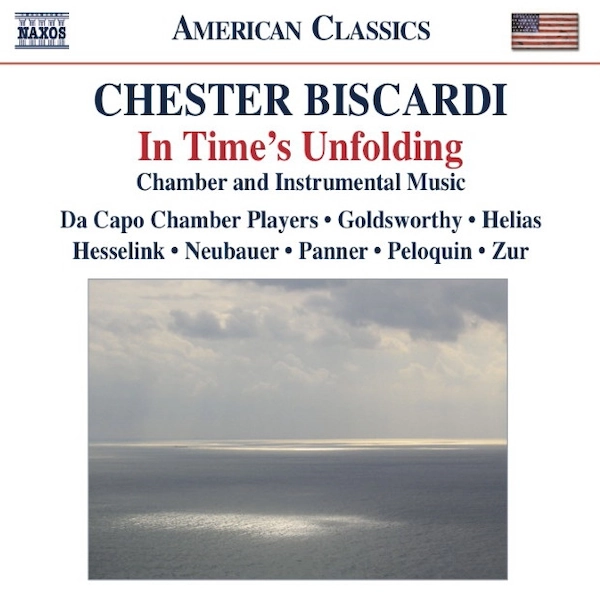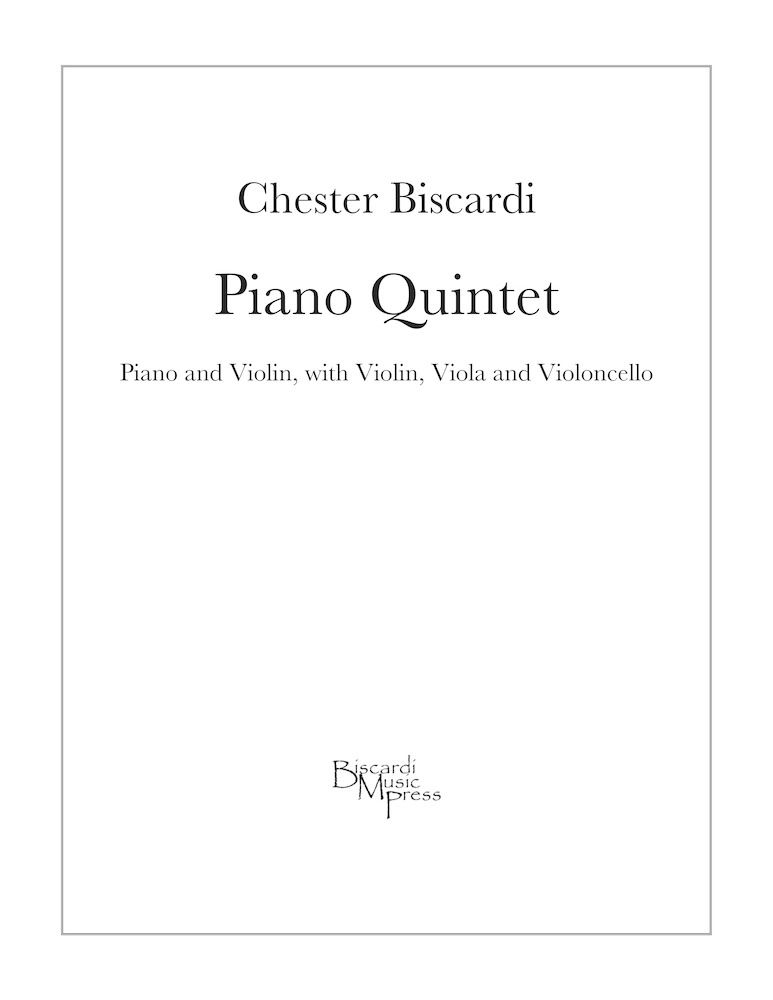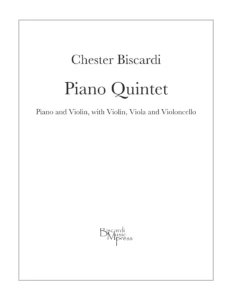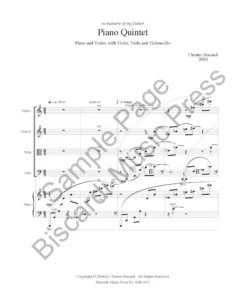Program Notes
Piano Quintet, for piano and violin, with violin, viola and violoncello (2004), was written in memory of my father who died when I was twelve. I am forever looking for him. He bought me a violin when I was nine. He serenaded my mother on the accordion after dinner at dusk smoking a cigarette – mostly love songs from Italy. But for a long time I couldn’t find a way to express that loss in music, so I wrote a poem about it – at the end of which my father enters the fabric of my work:
What I’m finding, now that I’m older than he ever had a chance to be,
Is that I love him for who and what he was.
He lives in the details of my music.
And I’ve stopped asking myself
What sort of man I would have beenIf my father hadn’t died when I was twelve.
I finally did find a musical way to remember him in Piano Quintet, inspired by the recognition scene from Book Sixteen: Father and Son in The Odyssey, translated by Robert Fitzgerald:
I am that father your boyhood lacked
and suffered pain for lack of. I am he.
Piano Quintet is in part a composite of sketches dating back to 1987. I attempted to incorporate these ideas in a variety of ways — a work for orchestra, a ballet, an act of an opera — before I settled on a chamber version inspired by having heard a performance of Schumann’s Piano Quintet in E-Flat Major, Op. 44 (1842). I also borrowed musical images from several of my earlier works, including Mestiere (1979), Trasumanar (1980), Traverso (1987), Piano Concerto (1983), “Recovering” (2000), and In Time’s Unfolding (2000), all of which explore the passage of time, loss, recovery, and transcendence. Recognition, for piano and violin with string orchestra (2004/2007), is an arrangement of this work.
To a certain extent I relied on a rather loose telling of The Odyssey to shape my musical narrative and the overall structure of this quintet. The piano may be interpreted as “Odysseus” and the violin as “Telemakhos”, Odysseus’s son. And the opening web-like music suggests the goddess Athena as she pulls Telemakhos out of his anger and daydreams and sets him on a hero’s path of action.
This work was begun during the summer of 2002 while I was in residence at Copland House, Cortlandt Manor, New York, as a recipient of the Aaron Copland Award, and was completed during a residency at The MacDowell Colony, Peterborough, New Hampshire, in the fall of 2004.










